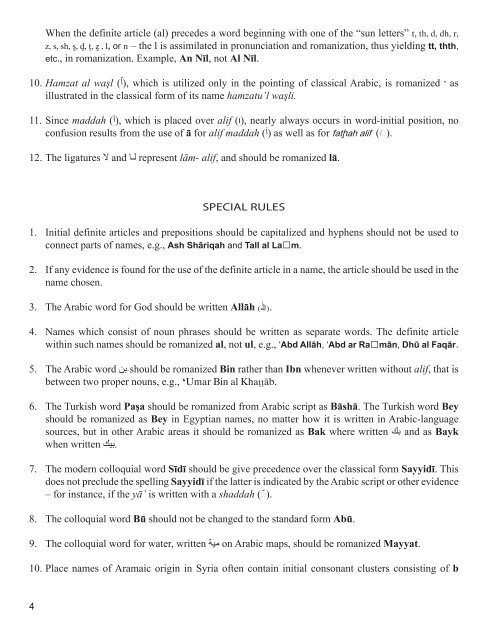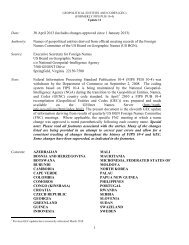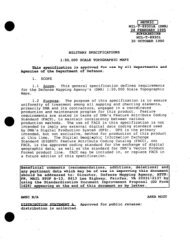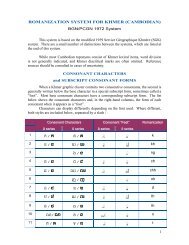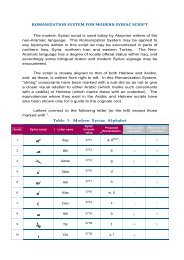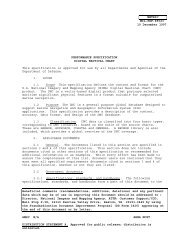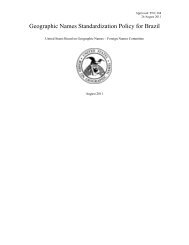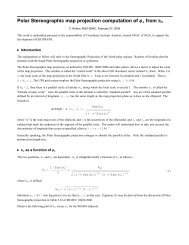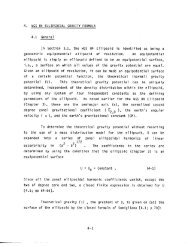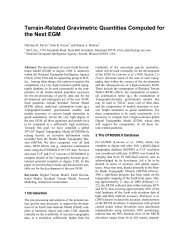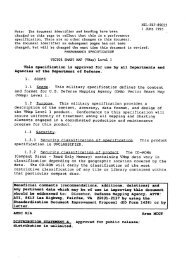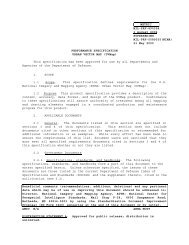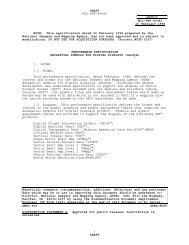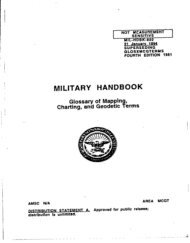ROMANIZATION SYSTEM FOR ARABIC - NGA
ROMANIZATION SYSTEM FOR ARABIC - NGA
ROMANIZATION SYSTEM FOR ARABIC - NGA
You also want an ePaper? Increase the reach of your titles
YUMPU automatically turns print PDFs into web optimized ePapers that Google loves.
4<br />
When the definite article (al) precedes a word beginning with one of the “sun letters” t, th, d, dh, r,<br />
z, s, sh, ş, ḑ, ţ, z̧ , l, or n – the l is assimilated in pronunciation and romanization, thus yielding tt, thth,<br />
etc., in romanization. Example, An Nīl, not Al Nīl.<br />
10. Hamzat al waşl (ٱ), which is utilized only in the pointing of classical Arabic, is romanized ’ as<br />
illustrated in the classical form of its name hamzatu’l waşli.<br />
11. Since maddah (آ), which is placed over alif (ا), nearly always occurs in word-initial position, no<br />
confusion results from the use of ā for alif maddah (آ) as well as for fatḩah alif (اَ◌ ).<br />
12. The ligatures لا and اـل represent lām- alif, and should be romanized lā.<br />
SPECIAL RULES<br />
1. Initial definite articles and prepositions should be capitalized and hyphens should not be used to<br />
connect parts of names, e.g., Ash Shāriqah and Tall al Laḩm.<br />
2. If any evidence is found for the use of the definite article in a name, the article should be used in the<br />
name chosen.<br />
3. The Arabic word for God should be written Allāh (ﷲ).<br />
4. Names which consist of noun phrases should be written as separate words. The definite article<br />
within such names should be romanized al, not ul, e.g., ‘Abd Allāh, ‘Abd ar Raḩmān, Dhū al Faqār.<br />
5. The Arabic word نب ِshould be romanized Bin rather than Ibn whenever written without alif, that is<br />
between two proper nouns, e.g., ‘Umar Bin al Khaţţāb.<br />
6. The Turkish word Paşa should be romanized from Arabic script as Bāshā. The Turkish word Bey<br />
should be romanized as Bey in Egyptian names, no matter how it is written in Arabic-language<br />
sources, but in other Arabic areas it should be romanized as Bak where written كب and as Bayk<br />
when written كيب.<br />
7. The modern colloquial word Sīdī should be give precedence over the classical form Sayyidī. This<br />
does not preclude the spelling Sayyidī if the latter is indicated by the Arabic script or other evidence<br />
– for instance, if the yā’ is written with a shaddah (◌ّ).<br />
8. The colloquial word Bū should not be changed to the standard form Abū.<br />
9. The colloquial word for water, written ةيم on Arabic maps, should be romanized Mayyat.<br />
10. Place names of Aramaic origin in Syria often contain initial consonant clusters consisting of b


